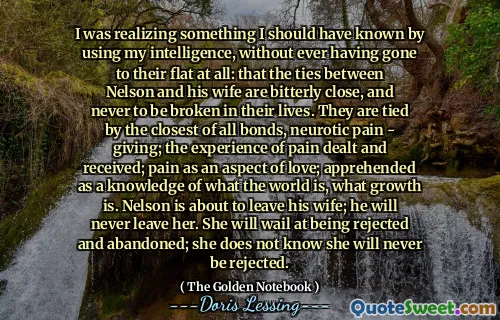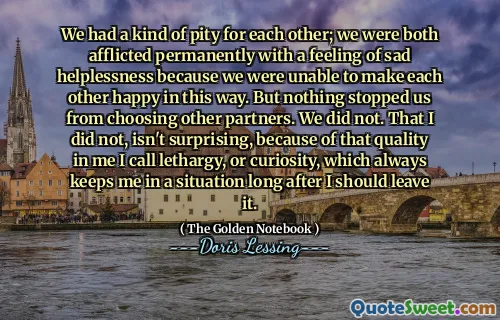"The Golden Notebook" by Doris Lessing explores the fragmented nature of modern life through the eyes of Anna Wulf, a writer who is struggling to make sense of her experiences and the world around her. The novel is structured around four notebooks, each representing different aspects of her life—her personal experiences, her political beliefs, her relationships, and her creative self. This fragmentation mirrors the chaos in Anna's mind and serves as a commentary on the difficulties of self-identity amidst societal expectations.
Throughout the narrative, Lessing delves into complex themes such as feminism, mental health, and the interplay between personal and political dimensions. Anna's struggles reflect the broader struggles of women in a patriarchal society, highlighting the constraints and expectations placed upon them. The novel challenges traditional storytelling by intertwining various narrative forms, showcasing Anna's attempts to maintain her sanity and coherence in a disjointed world.
Ultimately, "The Golden Notebook" serves as a profound exploration of the human condition, the quest for authenticity, and the challenge of integrating multiple facets of one's identity. Lessing's innovative approach invites readers to reflect on their own experiences, making this work a significant contribution to literature and feminist discourse. Through Anna’s journey, the novel emphasizes the importance of self-discovery and the continuous struggle for clarity in a fragmented reality.
More »
Today Birthdays
1729 -
Edmund Burke
1949 -
Haruki Murakami
1954 -
Howard Stern
1876 -
Jack London
1993 -
Zayn Malik
1951 -
Kirstie Alley
1863 -
Swami Vivekananda
1923 -
Alice Miller
1987 -
Naya Rivera
1825 -
Brooke Foss Westcott
1944 -
Joe Frazier
1951 -
Rush Limbaugh
1964 -
Jeff Bezos
1978 -
Jeremy Camp
1628 -
Charles Perrault
1856 -
John Singer Sargent
1970 -
Kaja Foglio
1953 -
Rick Santelli
1986 -
Gemma Arterton
1968 -
Raf Simons
1958 -
Christiane Amanpour
1966 -
Olivier Martinez
1996 -
Ella Henderson
1917 -
Maharishi Mahesh Yogi
1949 -
Ottmar Hitzfeld
1928 -
Ruth Brown
1968 -
Heather Mills
1946 -
George Duke
1968 -
Rachael Harris
1923 -
Ira Hayes

